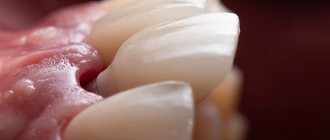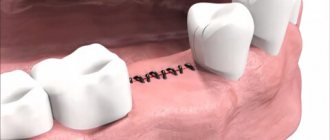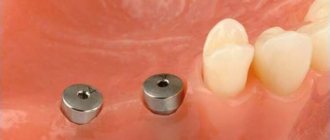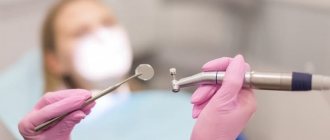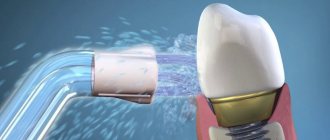11/26/2018 The main specialization of our clinic is carrying out complex dental implantation in a few days. This means that our patients receive new teeth immediately after installation of implants. Due to the fact that the treatment lasts only a few days, many people decide to undergo it before important events in life - meetings, performances, anniversaries and even before their own wedding. Of course, it’s a “sin” not to drink on them, because you need to not offend the owners of the house and wash your new teeth. Therefore, a completely reasonable question arises: is it possible to drink alcohol after dental implantation? And if possible, then how much.
To drink or not to drink: that is the question
We understand that sometimes a little sip is necessary. For example, so as not to offend the owners of the house or the organizers of the event. But here it is important to know when to stop and remember that new teeth are not only useful, but also quite expensive.
You personally need to weigh the pros and cons. Either get momentary pleasure, questioning the survival of the implants and risk losing the guarantee from the clinic, or still give up alcohol and enjoy your new teeth for a very, very long time.
To the question “can you drink after implantation,” our answer is categorical. NO. Check out our ARGUMENTS why we strongly DO NOT recommend drinking alcohol after having implants installed.
Reasons for quitting alcohol
As with any surgical procedure, you must abstain from alcohol before implantation. This is primarily due to the fact that pain relief will be carried out by administering potent medications. The consequences can be very different; the anesthetic simply may not work, so the person will experience severe pain during the doctor’s work. More serious complications often occur.
This can be explained as follows: alcohols affect the viscosity of blood and change its properties. As a result, severe swelling appears and bleeding may occur, which poses a threat to life. In addition, alcohol slows down the process of tissue restoration and wound healing, promotes the systematic destruction of the jaw bone, causes irritation of the mucous membranes and even provokes suppuration at the site of intervention.
Another important point: under the influence of alcohol, a person becomes inattentive, he loses the ability to adequately assess what is happening around him. That is why someone may not notice how during the recovery period he accidentally injures the area where the implant is installed, but he does not immediately seek help, he may forget to brush his teeth well, etc. It is preferable to forget about alcohol for several months until the implant completely fuses with the bone tissue.
Bone tissue is destroyed, gums heal poorly
Any alcoholic drink contains alcohol and fusel oil, a fermentation product. In moderation, these oils are relatively harmless - they are what give the drink its flavor. Vodka is considered the “cleanest” drink, whiskey is considered the “dirtiest” drink. Fermentation products are also found in beer, but not only in the form of oils, but also in the form of bacteria, which can cause inflammation in an open wound. Therefore, neither pure alcohol, nor vodka, nor whiskey, and especially beer, can be used for antiseptic treatment of wounds, as some men believe. And beer can also generally cause tissue inflammation.
Please do not read the Internet and do not study the stories of people who wrote that “they drank alcohol after getting implants or a tooth removed and nothing happened.” A lot depends on the amount of alcohol consumed, the nature of the surgery, its complexity, your state of health and the medications prescribed. If it worked for others, this does not mean that you will not have complications either.
Fusel oil, which is contained in alcohol, leads to the following negative effects:
- irritation of the mucous membrane, which slows down the healing process and causes inflammation of the gums,
- if alcohol-containing drinks come into contact with a fresh wound, they can cause severe pain and even a small burn,
- vasodilatation, pressure surges and, as a consequence, prolonged bleeding,
- inhibition of all natural processes of the body, which affects the rate of “healing” of wounds,
- gradual destruction of bone tissue,
- increased risk of complications - hematoma, purulent inflammation, peri-implantitis and implant rejection.
The effect of alcohol on immunity
Alcohol consumption negatively affects immunity at all levels. Alcohol burns the mucous membranes, which causes additional trauma to the tissues and impairs the healing process. In addition, alcohol reduces the activity of macrophages - cells that destroy harmful bacteria. The negative effects of alcohol also extend to other cells of the immune system, which protect the body from various infectious agents. Therefore, during the period of “engraftment” of the implant, it is important to maintain the normal functioning of the immune system: balance the diet, enrich it with vitamins and minerals, and completely eliminate smoking and alcoholic beverages.
Antibiotics are prescribed, which means alcohol is prohibited
When implanting teeth, antibiotics are often prescribed (if teeth were removed before installing implants, there was pronounced periodontitis and periodontal disease). But antibiotics and alcohol are not compatible - not only your attending physician will tell you this, it is also written in the instructions for almost all drugs. The consequences can be both relatively harmless (the medicine simply will not work) or very sad - even death. Alcohol is prohibited during the entire period of taking antibiotics, as well as for at least 4 days after.
Yes, not all antibiotics cannot be combined with alcohol. But most of them. Among the unpleasant consequences are palpitations, nausea, vomiting, increased blood pressure and general intoxication of the body.
Other bone grafting methods
There are other common types of bone grafting. There are several differences between them: the purpose of the exercise and the necessary material. Popular:
- Autotransplantation. Used in cases where it is necessary to increase the width of bone tissue. At the first stage, the doctor collects material from the patient himself, then installs the screw and secures the chips and membrane. Lastly, the gums are sutured. It is believed that autotransplantation is the most optimal method, since it rarely causes implant rejection.
- Synthetic replacement. When building up artificial teeth, a synthetic powdery material is used, which is completely hypoallergenic.
- Barrier membranes. They are used to prevent the most common complication during implantation—bone growth into the mucosa. A special membrane separates the mucous membrane from the material, which helps strengthen the installed blocks.
You forget that you need to see a doctor
Such situations, of course, arise if the patient drinks alcoholic beverages for a long period of time. Shifting the visit to the doctor by 1-2 days (after a month after installation of the implants) is allowed. But in the first week, visits to the doctor should be strictly day-to-day.
If a patient misses regular visits to the doctor, if the prosthesis is not adjusted, this can lead to disruption of the healing process of the implants and the functioning of the entire jaw system. For example, the bite changes due to improper closing of the jaws; the prosthesis will cause overload of the implants and the temporomandibular joint. Therefore, it is necessary to adhere to individual visit schedules.
Increased appetite and relaxed state
For a certain period after surgery, the patient is required to adhere to a certain diet, from which various solid foods that can damage the implant, as well as some irritants, are excluded.
Our body is designed in such a way that drinking alcohol stimulates a strong appetite. After drinking a bottle of beer or a couple of glasses of wine, you may simply break down and start eating everything, including prohibited foods. Ultimately, all this will affect the implants and the quality of their healing.
How to eliminate pain without harming your health
Pain and swelling in the first few days after surgery is normal. To relieve pain, you can take painkillers. These are non-narcotic analgesics, but the specific drug is prescribed by the doctor, taking into account the clinical picture and individual characteristics of the patient. Prescribing painkillers for yourself is strictly prohibited.
Additionally, you can apply a cold compress to your cheek - a heating pad with cold water or ice. But you can do this for no more than 10-15 minutes with a break of 40 minutes. You cannot hold the compress longer, so as not to provoke hypothermia and inflammation.
Rinsing the mouth with a special solution will help relieve or reduce pain; which drug to use should be checked with the specialist who performed the implantation.
To speed up the healing process, you can apply a healing ointment to the operated area.
The use of herbal infusions and decoctions is allowed, but only in consultation with the doctor, since individual components can cause allergies and other reactions. The compositions are used for rinsing the mouth along with antiseptic solutions.
Who needs Prohibition?
The list of permitted liquids in the days following minimally invasive surgery is very limited. It consists of clean drinking water (boiled or still mineral), tea, juice, compote. Liquids must be warm. The presence of dyes, alcohol, flavorings, and food additives in them is unacceptable!
After tooth extraction, any alcoholic drinks (even low-alcohol ones) become sources of increased health hazard. “Prohibition” - abstinence from alcohol during the rehabilitation period - is necessary primarily for the patients themselves. Its timing varies depending on the complexity, the reason for the minimally invasive intervention, the number of teeth removed, and the operated area of the oral cavity.
When can you drink alcohol after implantation?
The standard period for limiting the consumption of alcoholic beverages is 14-20 days.
Usually, during this period, open wounds have time to heal, and the implant has more or less taken root in the tissues. But you shouldn’t rush too much - in the postoperative period you should be observed by a doctor. It is he who determines the period of abstinence that you need for recovery. We hasten to remind you that there are exactly as many studies confirming the benefits of small doses of alcohol as there are studies reporting irreparable harm even in small doses. We always recommend a healthy lifestyle. To the list of posts
Myth No. 3: Any implant is suitable for emergency implantation
This statement is completely false. The fact is that there are no universal tools. It's the same with implantation.
In the photo: a special implant for emergency dental implantation
For different dental implantation methods, implants of different structures are used, and what is good for classical implantation is not suitable for one-stage implantation.
For one-stage implantation, dental implants of a special structure are used, which allows them to withstand the chewing load immediately after implantation.
Therefore, if you are planning implantation, ask how many implantation systems the dental clinic has. A self-respecting dental clinic that deals with implantation professionally, and not from time to time, has several implantation systems in its arsenal. Sign up for a consultation
When can you drink alcohol?
The harm of any alcoholic beverages is obvious. However, during postoperative rehabilitation, the impact of addictions aggravates the situation and reduces the body's regenerative and protective forces. If the patient does not suffer from alcoholism, then he will not experience an acute need for alcohol and will not jeopardize the result of the operation. According to medical instructions, it is permissible to drink alcohol 5-7 days after implantation.
If the patient wants to achieve quick implantation and the absence of complications, then he should forget about alcohol for six months.
Risks associated with alcohol consumption
| Poor oral hygiene When heavily intoxicated, a person often does not control his actions, so he may skip brushing his teeth or do it incorrectly. For example, by damaging the installed implant or gum. |
| Risk of damaging implants Alcohol increases appetite - that's a fact. You can unknowingly eat something that is prohibited in the first days after implantation: hard meat, nuts, etc., which in the future may negatively affect the implantation of the implant. |
| Decreased immunity Alcoholic drinks, even in small doses, affect the functioning of the immune system and slow down the body's natural processes. The wound will take a long time and heal worse, and the risk of implant rejection increases. |
| Failure to comply with doctor's visit schedule It is a mistake to think that after installing an implant you can forget about going to the dentist. You also need to take care of the implant as you would your own teeth: come for a check-up every six months and do professional hygiene. Otherwise, inflammation of the surrounding tissues will occur and, as a result, implant rejection. |
Many patients forget that the guarantee for treatment is valid only if they regularly undergo follow-up examinations, 3D diagnostics and a complex of professional hygiene.

